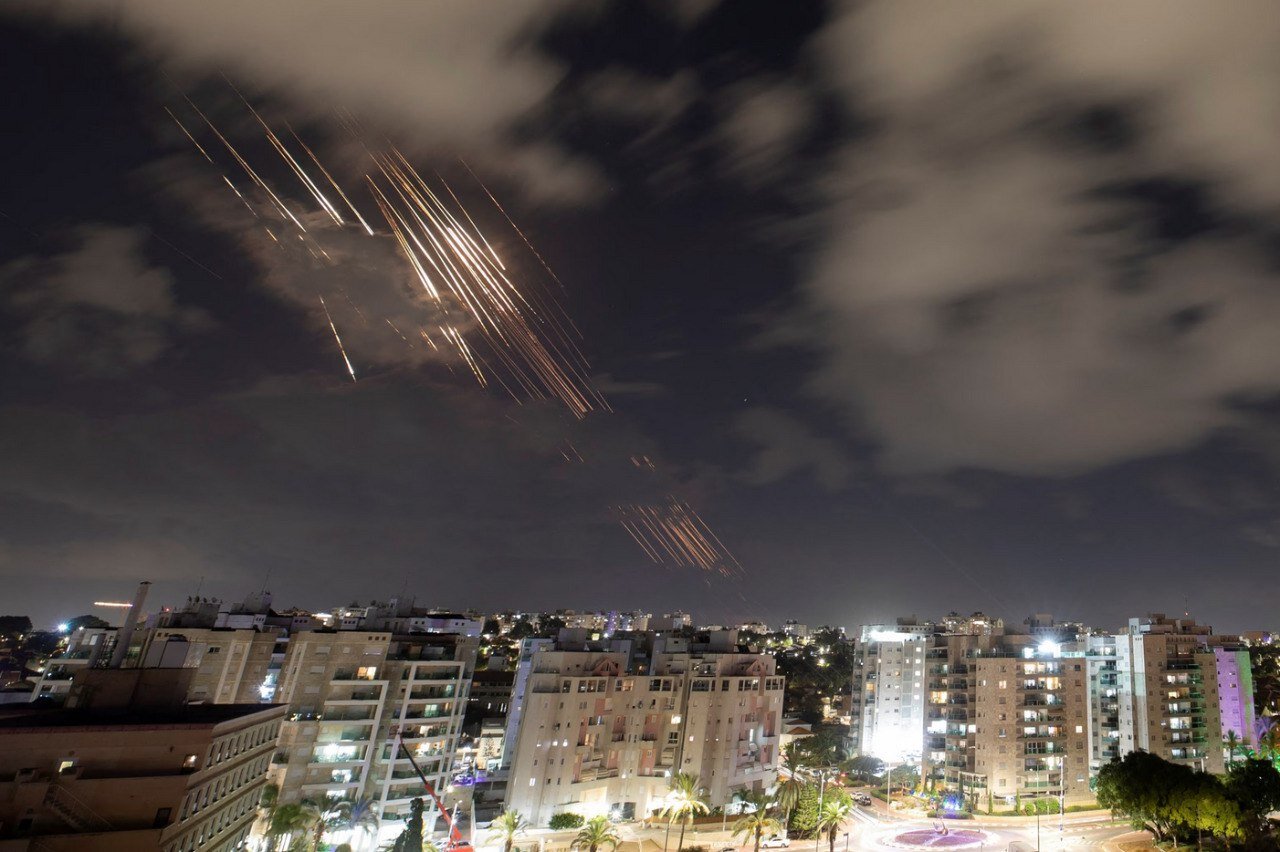Iran's Hand on the Trigger
Tehran vows retaliation if Israel responds to Operation True Promise II

TEHRAN – Salvos of Iranian missiles rained on the occupied territories on Tuesday night, comforting the people of the region who were eagerly awaiting a response to Israel’s terror attacks in the past two months, and occupying observers with the thought of what could happen next.
Iran’s attack dubbed Operation True Promise II involved firing approximately 200 ballistic missiles at three Israeli military bases near Tel Aviv. The Islamic Revolution Guard Corps (IRGC) said in a statement that 90% of the projectiles managed to hit their targets. Israel and the U.S. claimed the operation had “failed”, not addressing online footage that showed tens of Iranian missiles hit the ground after the regime’s sophisticated defense shield failed to intercept them despite help from surrounding American forces and at least one regional country.
Operation True Promise II marked the second time Iran has targeted Israel directly from its soil. In mid-April, Tehran lobbed around 300 hundred drones and missiles at the occupied territories two weeks after the regime attacked the Iranian consulate in Damascus, killing a high-ranking IRGC commander and his deputy. After April’s strikes, Iran said it would repeat the procedure more painfully if Israel harms its personnel or assets anywhere in the world.
Was Iran’s attack legal?
Iran’s attack was in line with Article 51 of the UN Charter, which states that countries have an inherent right to defend themselves when they have been the victim of an “armed attack”. The Tuesday operation came after Iran became the target of two Israeli armed attacks. One on July 31, which killed Hamas political chief Ismail Haniyeh in Tehran, and one on September 27, which claimed the life of IRGC military advisor Brigadier General Abbas Nilforooshan along with Hezbollah leader Sayyad Hassan Nasrallah in southern Beirut.
According to Iranian President Masoud Pezeshkian, Iran was willing to put off a retaliation against Israel if that meant the U.S. could successfully pressure Israel to seal a cease-fire deal with Hamas. However, after the recent round of talks - which were initiated by the U.S. following the Haniyeh assassination - failed due to Israel's intransigence, and with the assassination of Nasrallah and a buoyed wave of Israeli terrorism in Lebanon, Tehran was forced to get back on track.
What happens next?
Iran says it used only a portion of its capabilities to strike Israel Tuesday night, a claim that analysts seem to confirm. Multiple high-ranking Iranian officials have stated that they are ready to take more severe action if the regime continues its aggression and responds to the missile strikes.
Israel, for now, says it will be retaliating. On the night of the attack, Israeli Prime Minister Benjamin Netanyahu said Iran had made a “big mistake” and that it would end up with the same fate as Gaza and Lebanon, as he read from a paper he was holding onto with shaking hands.
Iran’s rhetoric so far shows that while it is not looking to enter a war, it would also not shy away from one either if its interests and assets were on the line. It remains to be seen what move Israel makes next, but analysts speculate that the regime's actions will have a significant impact on the future of the region.
It is believed that Israel could choose to respond to Iran by trying to strike its military bases, nuclear sites, or energy facilities. It might also decide to carry out a sabotage attack, which is less likely to draw a strong reaction from Tehran.
“This may be where the Biden administration will intervene and truly rein in Israel,” said Scott Ritter, former U.S. Marine Intelligence Officer and UN Weapons Inspector. “If Israel attacks Iran’s oil-producing facilities, Tehran will do the same and target similar sites across the region. This would lead to global catastrophe and skyrocketing energy costs, especially in the West,” he told the Tehran Times, adding that current Vice President Kamala Harris would not have the chance to get elected as the next president if that happens.
Targeting Iranian nuclear sites will have unprecedented and devastating repercussions too, Ritter added. “I think Israelis will choose some military sites or decide to conduct sabotage attacks.”
